 Éticas climáticas en tiempos de crisis
Éticas climáticas en tiempos de crisis
El debate de este número esta dedicado a una reflexión sobre las éticas climáticas en tiempo de crisis. En esta sección, coordinada por Carmen Velayos (Universidad de Salamanca), cuatro especialistas (de USA, India, Cuba y Gran Bretaña) analizan la crisis ética en relación con el clima tomando como punto de partida los resultados de las cumbres de Copenhague y Cancún e intentar así dar respuesta a las preguntas de ¿dónde estamos ahora?, ¿qúe podemos esperar?, ¿qúe deberíamos hacer? y ¿cuáles son las respuestas responsables?
En relación con estas controversias éticas respecto de la política climática global, este número de DILEMATA incluye un interesantísimo artículo de Luciano Espinosa sobre la perspectiva bioética acerca del agua y su importancia en el mundo. El número incluye también un artículo de Iñigo de Miguel sobre el desafío ético de las quimeras e híbridos y otro trabajo de Miguel León sobre el concepto de fetichismo ligado a la ciencia ficción y a las diferentes concepciones ideológicas de la tecnología.
Se completa DILEMATA 6 con una rica selección de reseñas acerca de la ética ambiental, las mujeres y las migraciones, la bioética y el cine y las políticas contra la pobreza.
Están cordialmente invitados a consultar la revista, a enviar sus comentarios (hemos habilitado un espacio para tal función) y a remitir sus
propuestas de artículos y reseñas. ¡Ojalá DILEMATA sea también su revista!
Txetxu Ausín (CSIC), Director
*********************************************************************
DILEMATA 6(2011) [ISSN 1989-7022], International Journal of Applied Ethics
Available in open access at
http://www.dilemata.net/revista/index.php/dilemata/issue/view/7/showToc
DILEMATA, International Journal of Applied Ethics, reaches its sixth issue with a special section on climate ethics in times of crisis. In this forum coordinated by Carmen Velayos (University of Salamanca), four experts from the USA, India, Cuba, and the UK analyze the present crisis in relationship to the climate, using as departure the results of the Copenhagen and Cancun summits, and aiming to answer questions such as: Where are we now? What can we expect? What should we do? What should a responsible answer be like?
Related to those ethical arguments about global climate politics, DILEMATA includes an article by Luciano Espinosa about the bioethics of water and its world relevance. This issue also includes an article by Iñigo de Miguel about the ethical challenge of chimeras and hybrids, as well as another one by Miguel León on the concept of fetishism in relation to science fiction and the ideological underpinnings of technology. The issue ends with a wide variety of reviews about environmental ethics, women and migration, bioethics and film, and political action against poverty.
We hope that DILEMATA remains attracting your interest, and encourage you to take part in this project, either by sending your proposals for
consideration, or by replying to the debates already opened in this or previous issues. May DILEMATA be your journal, too!
Txetxu Ausín (Spanish National Research Council), Editor in Chief


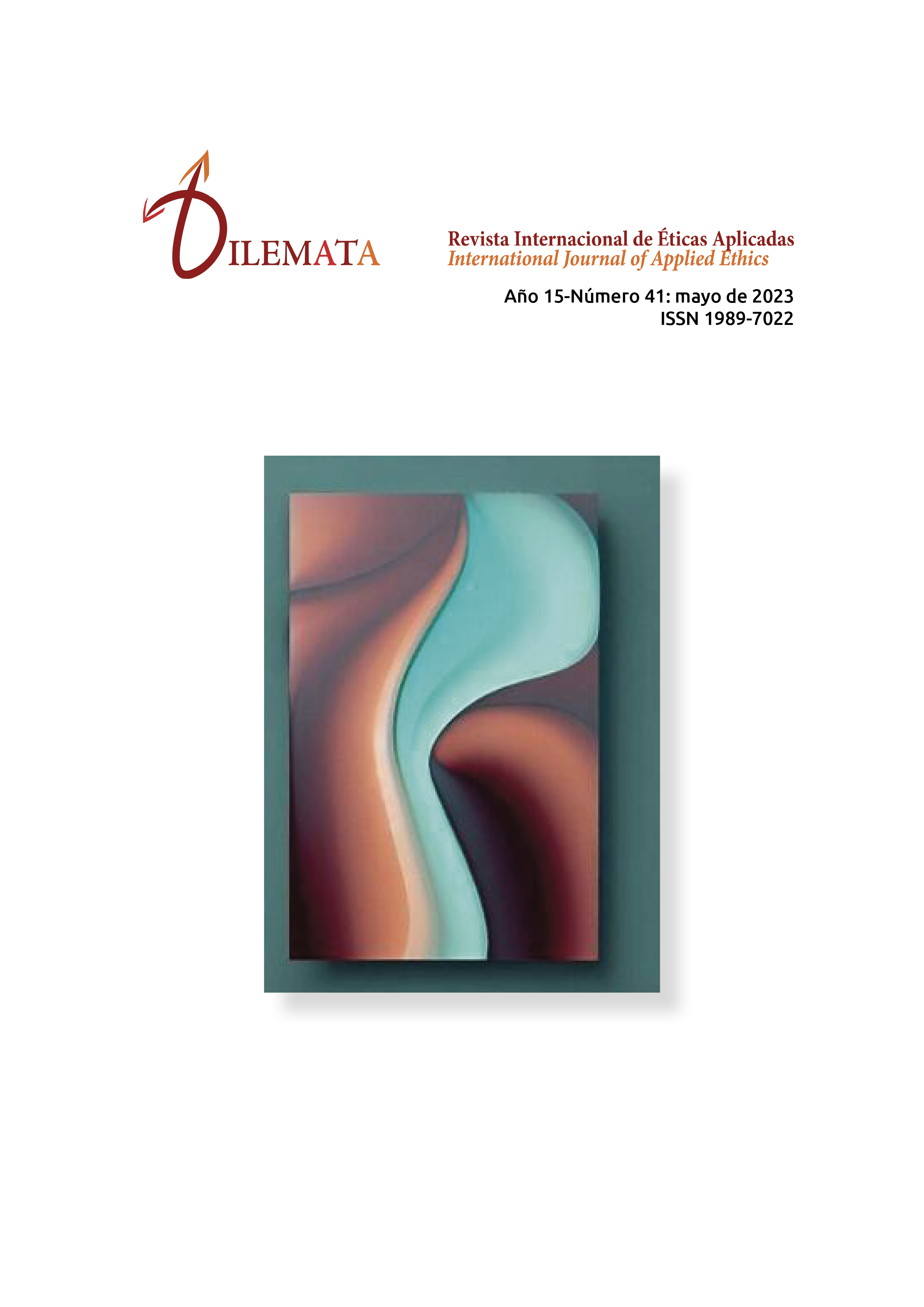 Nº 41, mayo 2023
Nº 41, mayo 2023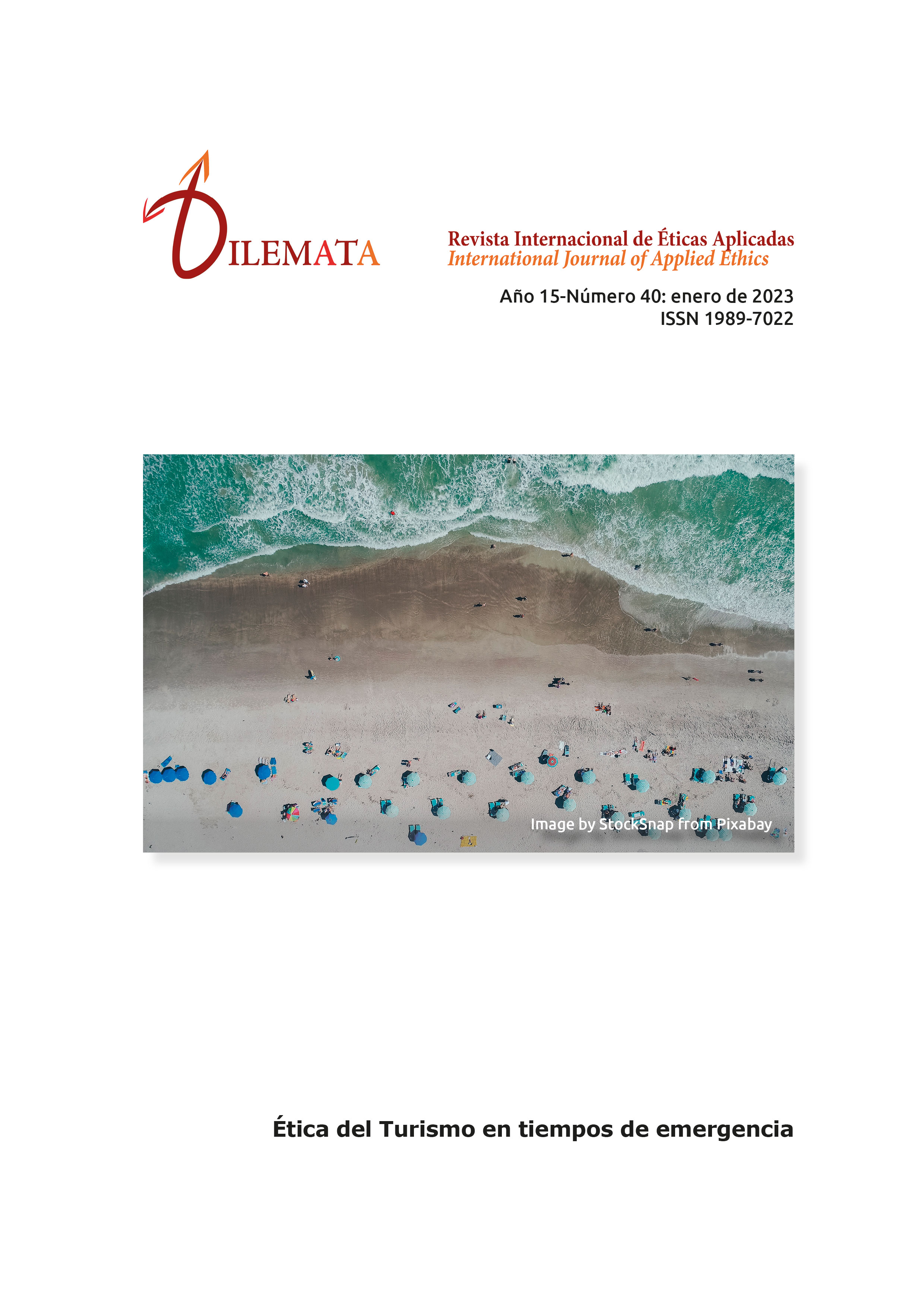 Nº 40, enero 2023
Nº 40, enero 2023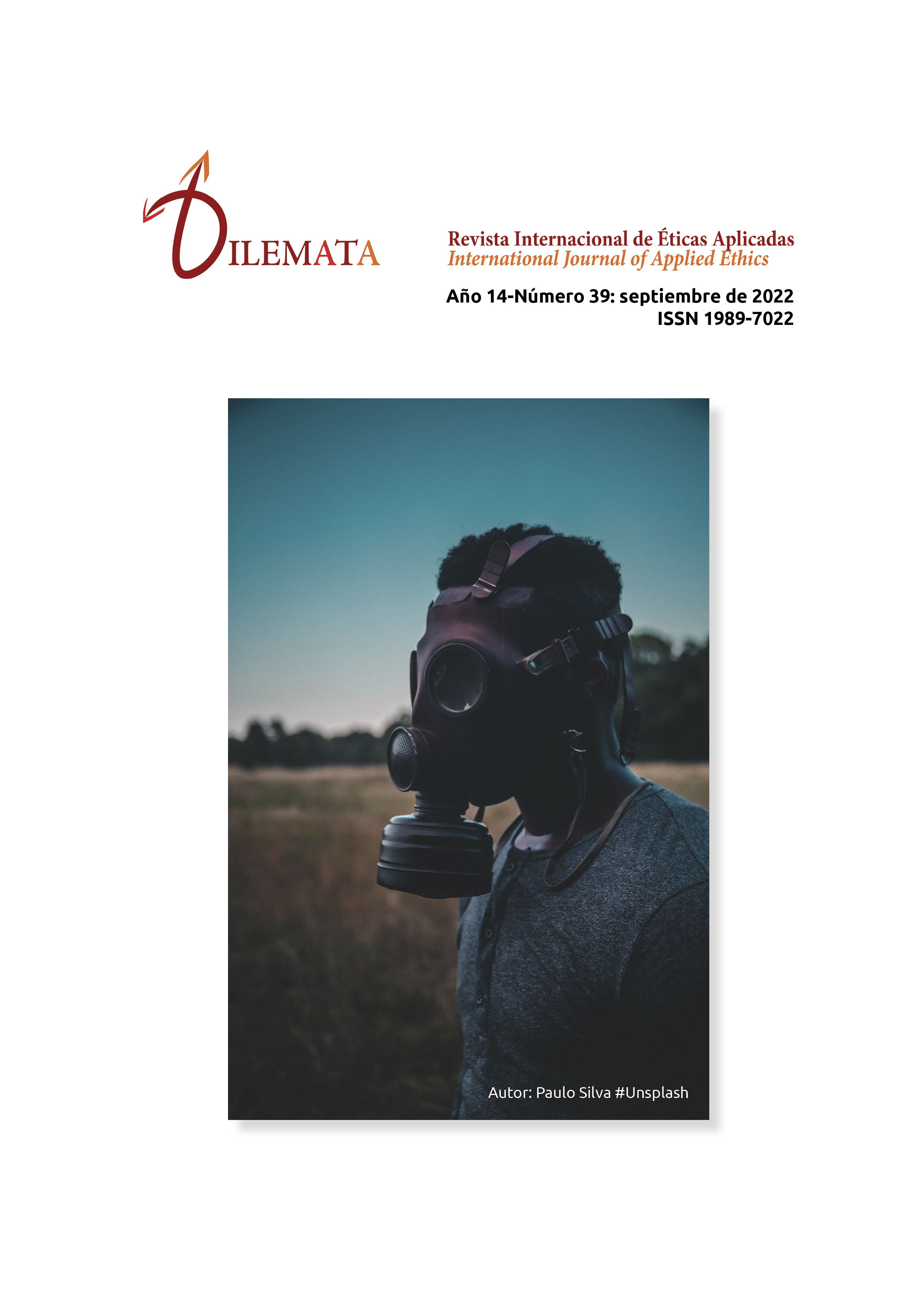 Nº 39, septiembre 2022
Nº 39, septiembre 2022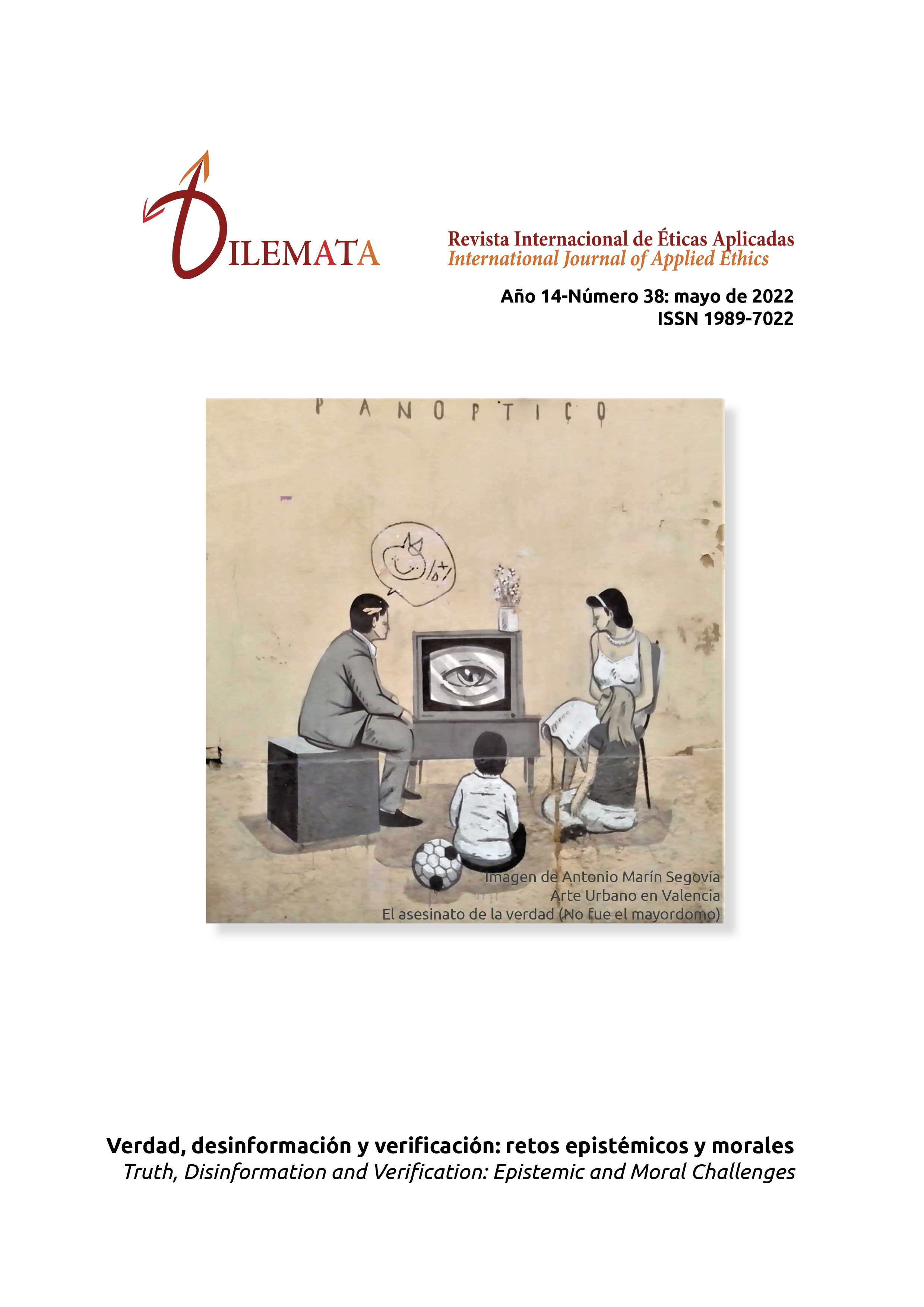 Nº 38, mayo 2022
Nº 38, mayo 2022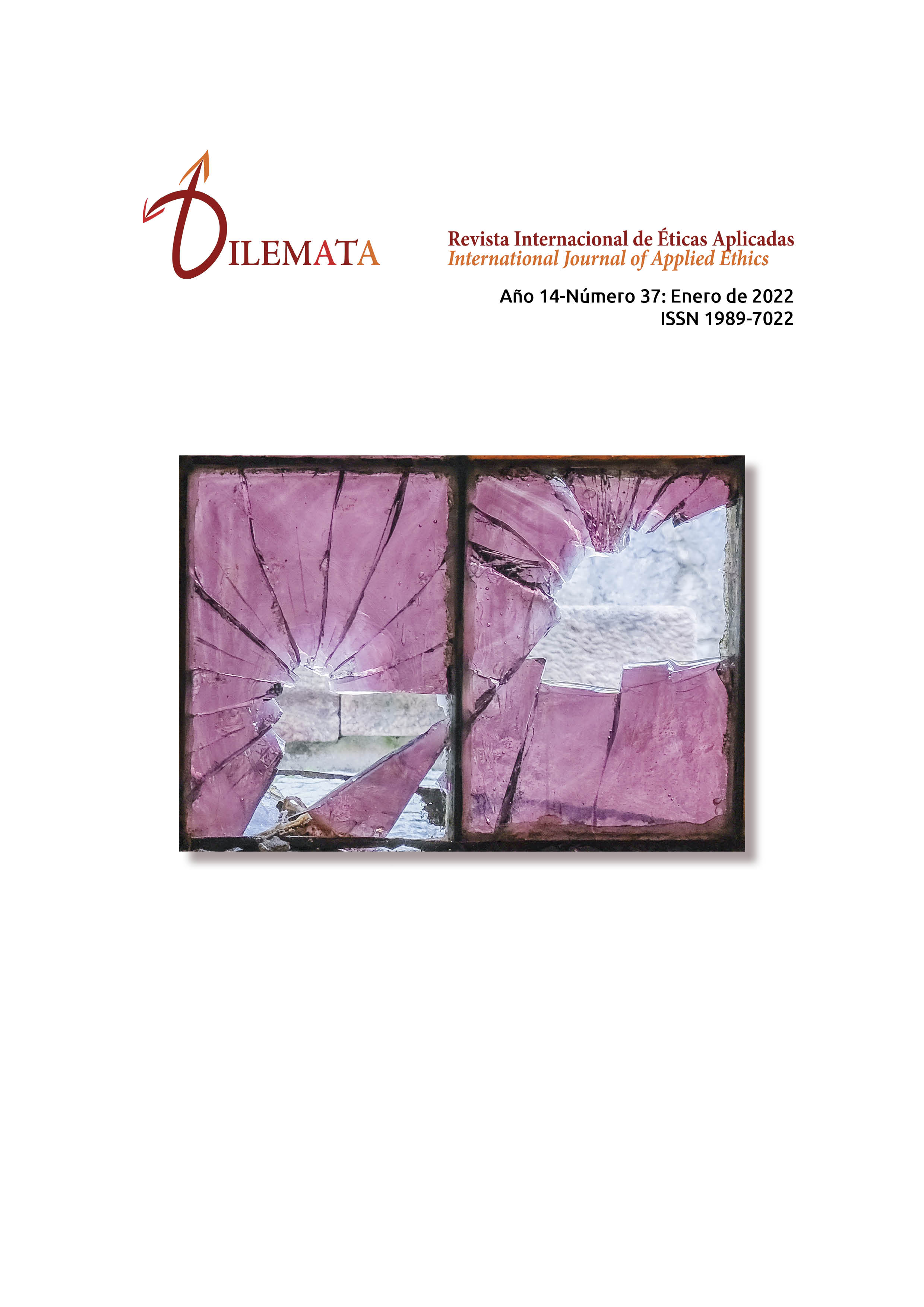 Nº 37, enero 2022
Nº 37, enero 2022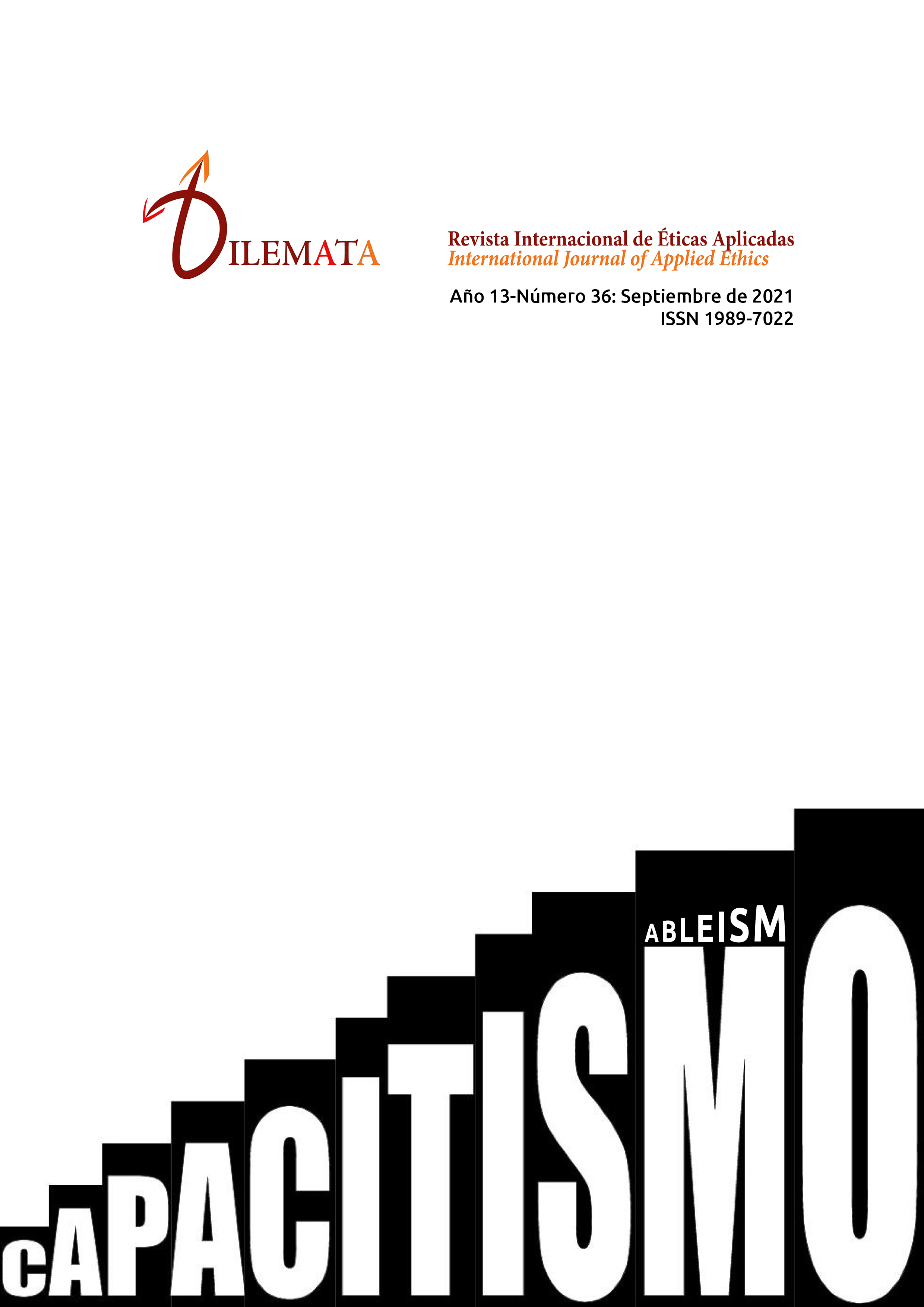 Nº 36, septiembre 2021
Nº 36, septiembre 2021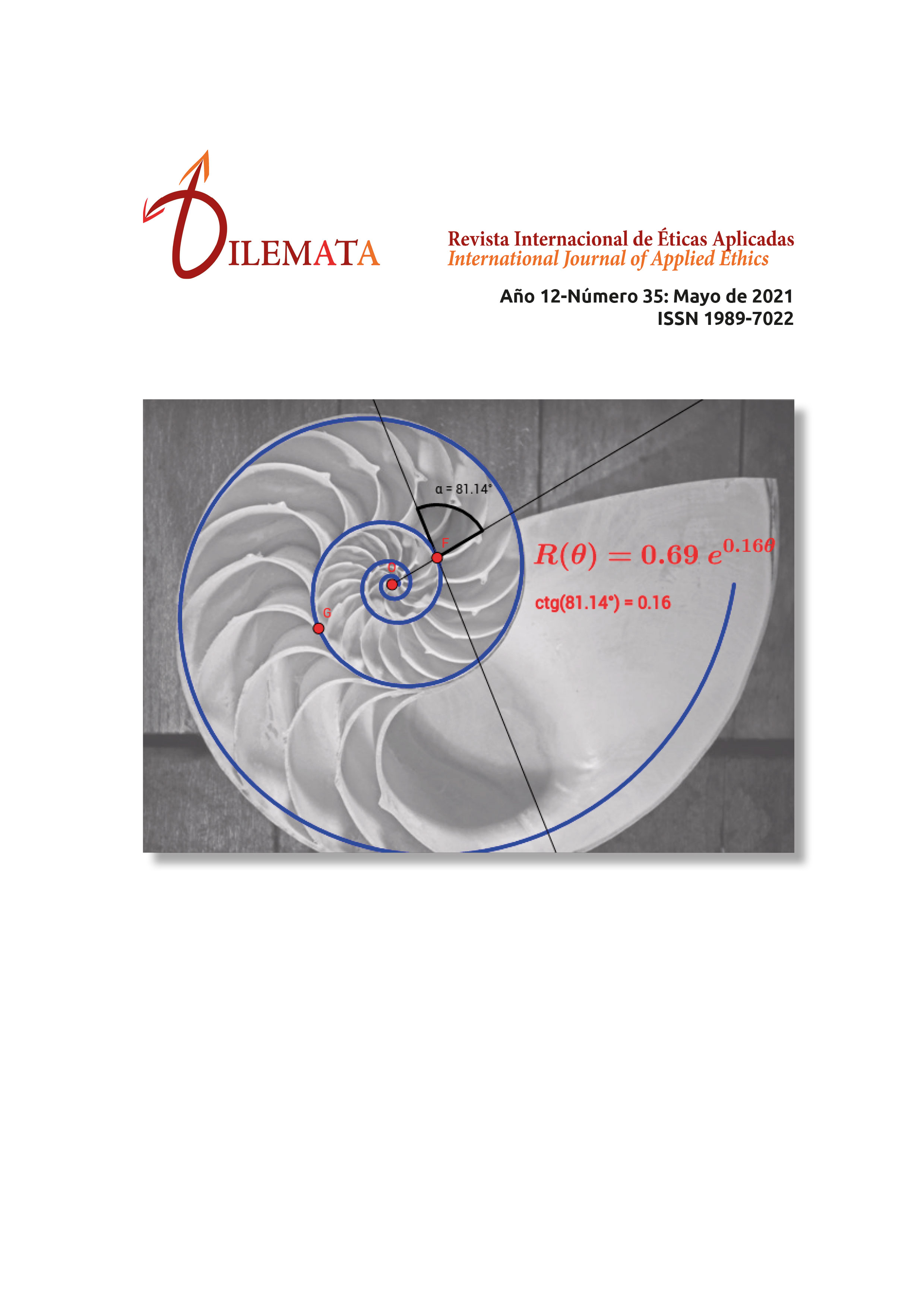 Nº 35, mayo 2021
Nº 35, mayo 2021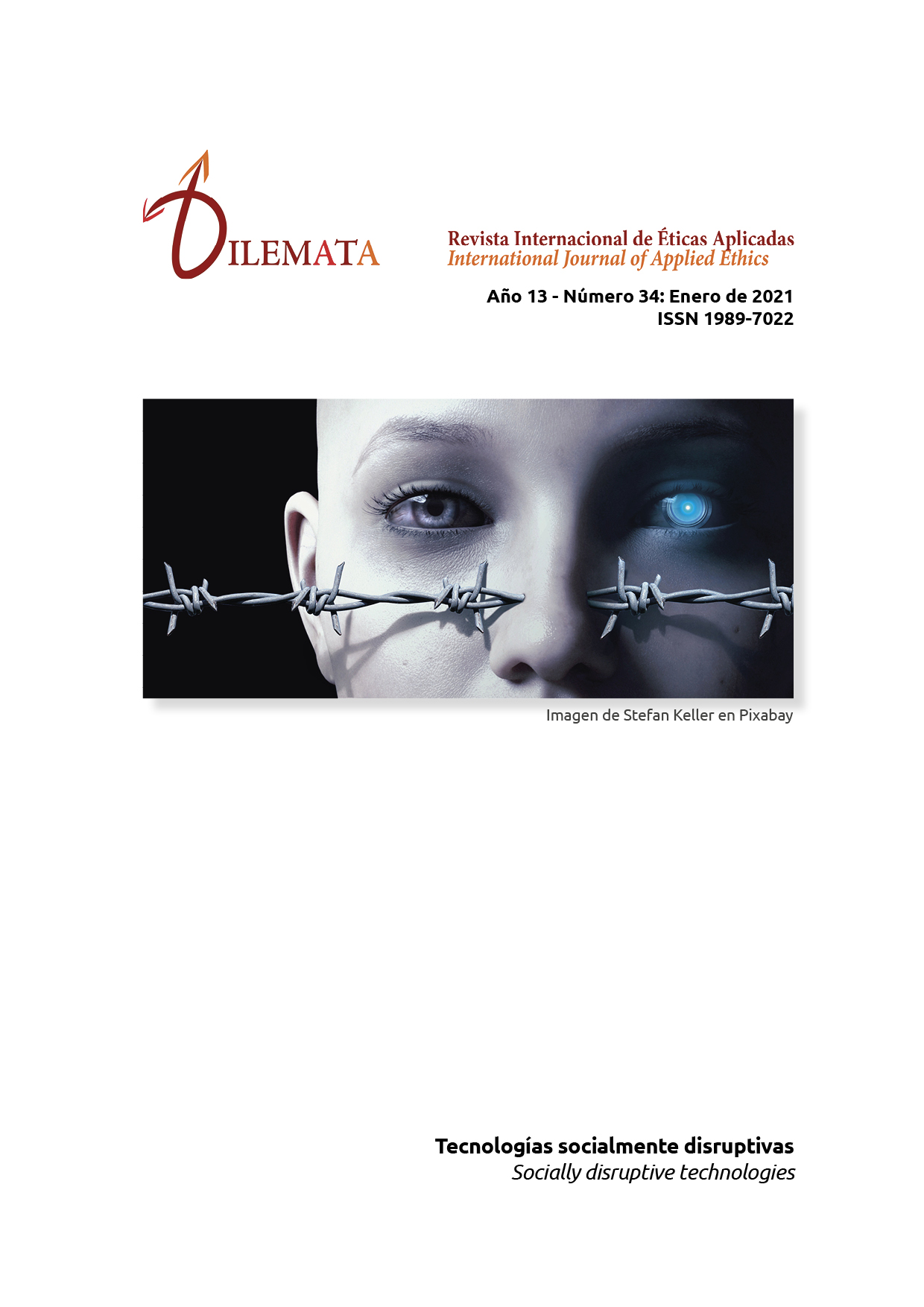 Nº 34, enero 2021
Nº 34, enero 2021